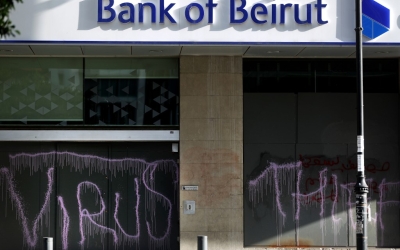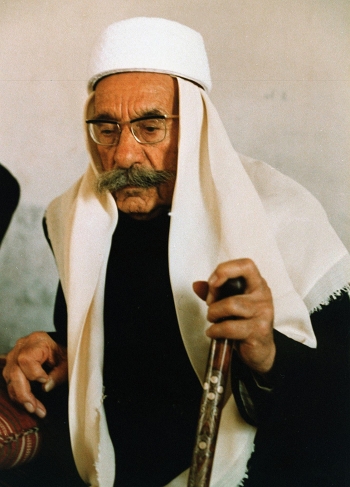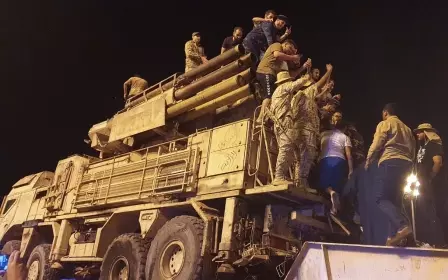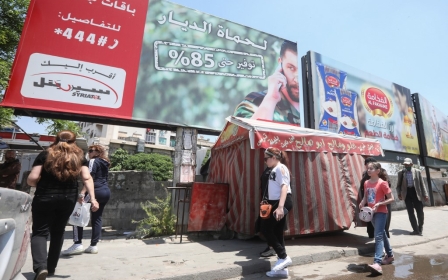'Enough is enough': Syria anti-government protests in Sweida swell for second day
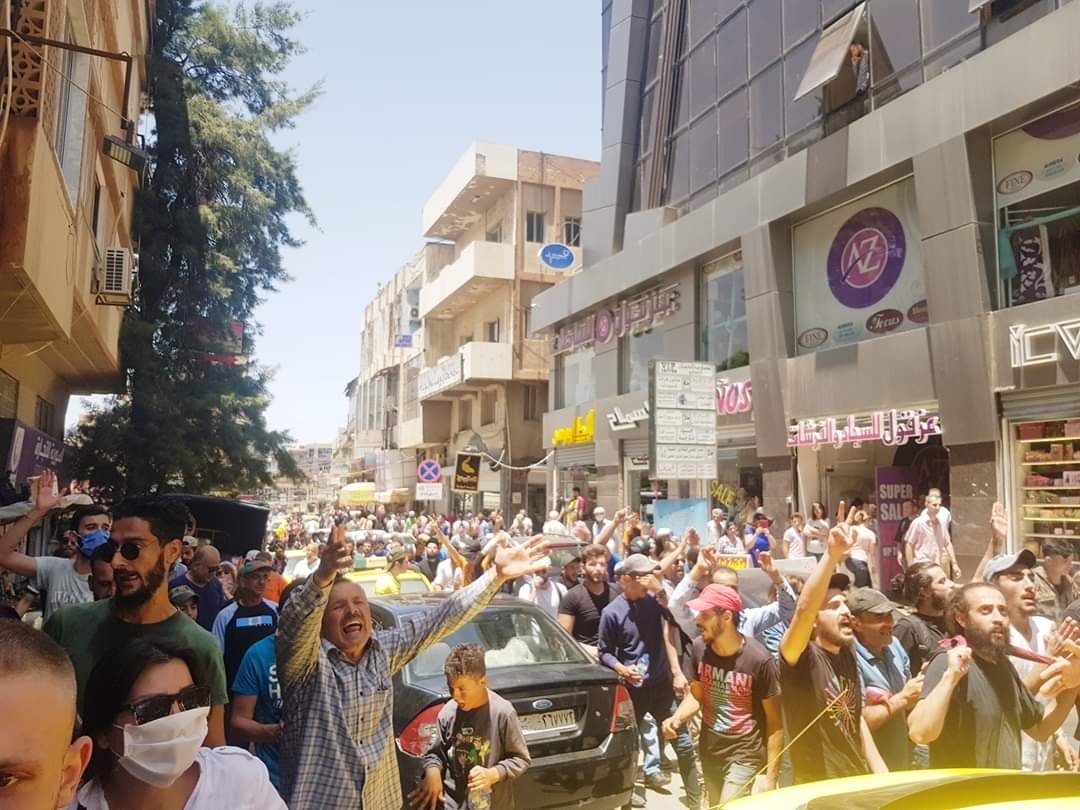
Peaceful protests against the Syrian government continued for a second day in the southern Syrian city of Sweida on Monday due to deteriorating economic and security conditions in the country.
The demonstrators gathered in front of the governorate building, despite security authorities deploying reinforcements in response to Sunday’s demonstration.
'Chants soon rose up for the overthrow of the Syrian regime, quoting slogans from the revolution that erupted in 2011'
- Protester
Protests in government-held parts of Syria are a rarity since 2011 demonstrations against President Bashar al-Assad’s rule were violently put down, sparking the ongoing civil war.
So far there has been no confrontation in Sweida and security forces are only monitoring the situation closely, according to Nowara al-Basha, an activist based in the city.
"The demonstrators roamed most of the main streets and the popular market in the city," Basha told Middle East Eye.
New MEE newsletter: Jerusalem Dispatch
Sign up to get the latest insights and analysis on Israel-Palestine, alongside Turkey Unpacked and other MEE newsletters
"The demonstration attracted different age groups, and dozens of civilians have begun to join it."
Monday’s demonstration began after public calls by activists on social media, under the themes "We want to live with dignity" and "revolution to correct the path".
Protesters' demands
While emphasising the right to peaceful demonstration, protesters condemned government corruption and deteriorating security and economic conditions.
“But chants soon rose up for the overthrow of the Syrian regime, quoting slogans from the revolution that erupted in 2011,” one of the demonstrators, who wished to remain anonymous for security reasons, told MEE.
Protesters also called for Iran and Russia – whose forces helped spur Assad’s victories against the opposition – to leave the country.
They also praised the unity of the Syrian people, and saluted most of the country’s provinces, including those on the Syrian coast, Latakia and Tartus, which is where Assad’s family and support base is drawn from.
"The deliberate practices of the regime over the past nine years have led to a complete economic collapse and crazy increases in prices and starvation of civilians," a demonstrator who wished to be identified as Rayan told MEE.
Economic collapse
The Syrian pound is plummeting in value, with its exchange rate hitting a new low on Tuesday at 3,200 to the US dollar - more than 60 times lower than what it was before 2011.
Syria’s economy has been left in tatters by nine years of war and western sanctions, but has faced a fresh crisis due to the coronavirus pandemic, Lebanon’s economic situation deteriorating next door and the US Caesar Syria Civilian Protection Act, which imposes severe penalties on countries supporting Assad.
Syrians have found it increasingly difficult to buy basic necessities, which has piled pressure on government officials whose lives seem divorced from those of the people they rule.
Bouthaina Shaaban, media adviser to Assad, sparked widespread controversy when she told pro-government newspaper Al-Watan on Friday that the Syrians must have the patience to confront the Caesar law and US sanctions.
In response, social media buzzed with alleged pictures of the sons of Syrian officials, including one said to be hers, taking pictures of themselves in front of luxury cars.
The collapse of the Syrian pound has sent food prices rocketing in all regions of the country. The price of bread has increased fourfold in the rebel-held Idlib province, which led to protests there on Sunday evening.
Witnesses told MEE that the protesters in Idlib accused the Syrian Salvation Government, the administration controlled by militant group Hay’at Tahrir al-Sham running the province, of being behind the collapse of the local economy.
They demanded the administration’s dissolution, the removal of HTS head Abu Mohammed al-Jolani and an end to corruption, witnesses said.
A revolutionary history
"Because the currency continues to collapse, 40 percent of shops in Sweida are closed," an activist from the local As-Suwayda 24 news page, told MEE, adding that 250 to 300 people protested on Monday.
Southwestern Sweida province has a special place in Syria, as it is the birthplace of the Sultan Pasha al-Atrash, who led the Great Syrian Revolution in 1925 against the French occupation. When Atrash died in 1982, about half a million Syrians attended his funeral.
The people of his city, who are predominantly Druze, participated in the Syrian revolution in 2011, but as it developed into a civil war and the influence of hardline factions expanded, Sweida preferred to stand neutral.
"We now need a new revolution against the corruption of the Syrian opposition and government," Safaa al-Sayyid, a Sweida resident using a pseudonym, told MEE.
"Many criminals took advantage of the suffering of civilians in the name of the revolution, and in the end, after they destroyed the country, they reconciled with the regime," she added.
"Over the past years, the biggest loser has been civilians. Enough is enough, we want to live in dignity and this is our right."
Middle East Eye delivers independent and unrivalled coverage and analysis of the Middle East, North Africa and beyond. To learn more about republishing this content and the associated fees, please fill out this form. More about MEE can be found here.


